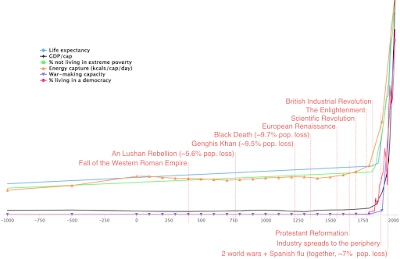Yesterday's Nobel Prize Winner's Work Has More Radical Implications than Most Admit

Richard Thaler won the Nobel prize yesterday for his work in developing behavioral economics. Thaler led the way in unraveling the traditional view in economics that humans are rational decision makers who at least on average will satisfy their goals if left to their own devices. In fact, humans systematically deviate from rationality in ways that give rise to policy prescriptions. I wrote my college thesis on Nudge , the book he co-authored with Cass Sunstein to collect these ideas, and I think behavioral economics is one of the greatest recent inventions. I think that the implications of Thaler's and others' work in behavioral economics goes deeper than what he and others admit. Experiments show that humans systematically deviate from rationality by being present-biased, prone to temptation, unfocused, and inordinately susceptible to social influence. Thaler points out that these are all things that can systematically stop us from achieving our goals. They a...



